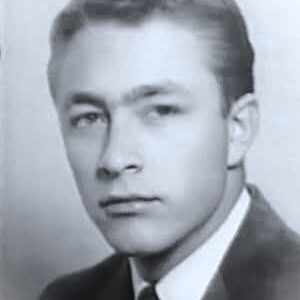Brendan Johnston, a high school senior from Colorado with a deep commitment to his Christian faith, made a decision that has since ignited a heated debate over gender, sports, and personal beliefs. In a controversial turn of events during the state wrestling tournament, Brendan chose to forfeit two matches against female opponents—a decision he explained was rooted in his religious and personal convictions.
The first incident occurred during his initial round when he withdrew from a scheduled match against Jaslynn Gallegos. In his statement, Brendan expressed that he felt uncomfortable competing physically against female wrestlers. He stressed that his decision was not an act of inequality or disrespect but rather a personal stance based on his faith and his desire to maintain what he considered a respectful environment in the sport. Despite the pressure that often accompanies high-stakes tournaments, Brendan felt compelled to stand by his beliefs, even if it meant sacrificing his competitive future.
Shortly after his withdrawal from the first match, Brendan faced a similar situation in a later consolation match against Angel Rios. Once again, he chose to forfeit the contest, a decision that ultimately marked the end of his promising wrestling career. This series of events has left many in the wrestling community, as well as observers beyond the sport, questioning the balance between personal beliefs and competitive fairness.
Jaslynn Gallegos, who went on to place fifth in the tournament, responded to Brendan’s decision with a sense of professionalism and understanding. She acknowledged his right to his personal beliefs while also emphasizing that, in her view, the sport of wrestling is about the strength, skill, and commitment of the athlete, regardless of gender. Gallegos maintained that she was simply there to compete as a wrestler and that her performance was the result of hard work and dedication to her craft. Her reaction underscored the complexity of the issue: while she respected his decision, she also highlighted the importance of seeing sports as a level playing field.
The forfeitures have sparked a broader conversation within the community. Many have taken to social media and local news outlets to debate whether personal religious convictions should allow an athlete to opt out of competition on the basis of an opponent’s gender. Some argue that respect and fairness in sports should transcend personal beliefs, while others insist that individual integrity must be upheld even if it challenges conventional norms.
Critics of Brendan’s decision contend that by withdrawing from matches against female wrestlers, he may inadvertently reinforce stereotypes and create an environment where gender divisions are emphasized rather than minimized. They worry that this could set a precedent for future competitions and potentially affect the inclusivity of the sport. On the other hand, supporters of Brendan’s stance assert that every athlete has the right to honor their deeply held beliefs, even if it comes at a personal cost. They see his decision as a demonstration of integrity—a willingness to stand by his convictions in the face of potential backlash and career setbacks.
Brendan’s decision to forfeit his matches not only ended his high school wrestling career but also left an indelible mark on the community, serving as a reminder of the sometimes painful intersection between personal belief and public expectation. His actions have led many to reflect on how much weight should be given to individual values in competitive settings and what the future might hold for sports as society continues to grapple with questions of gender equality and religious freedom.
In the end, while Brendan Johnston’s wrestling career may have come to an abrupt end, the conversation his decision has sparked is likely to continue for years to come. His story is a poignant example of how personal conviction can both define an individual’s path and challenge the norms of the community they are a part of, leaving us to ponder: where do we draw the line between personal integrity and the collective spirit of the game?





